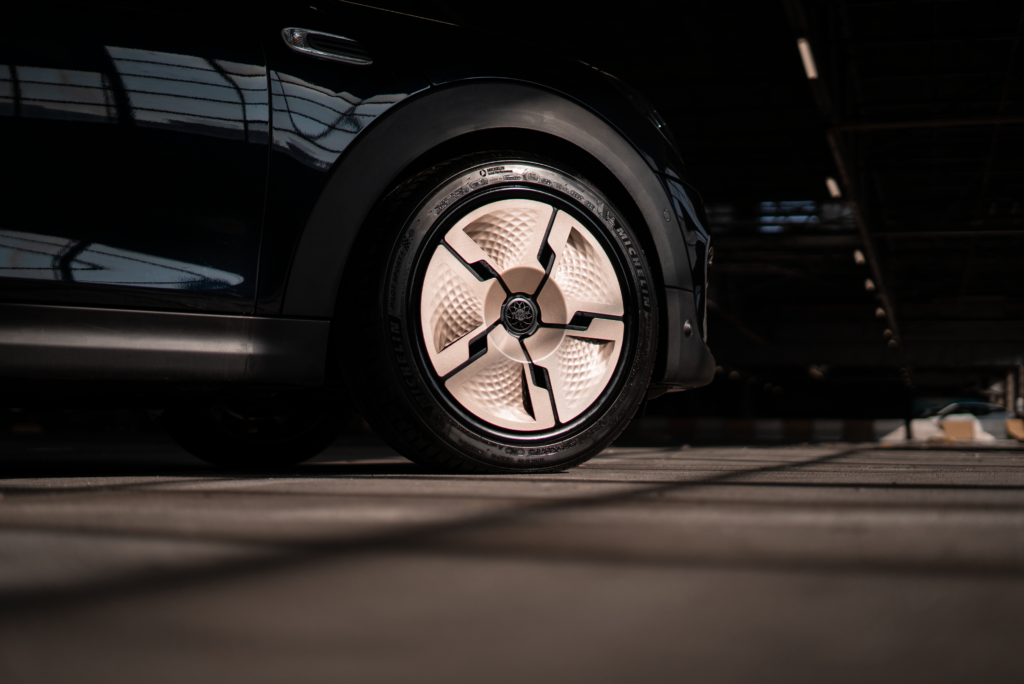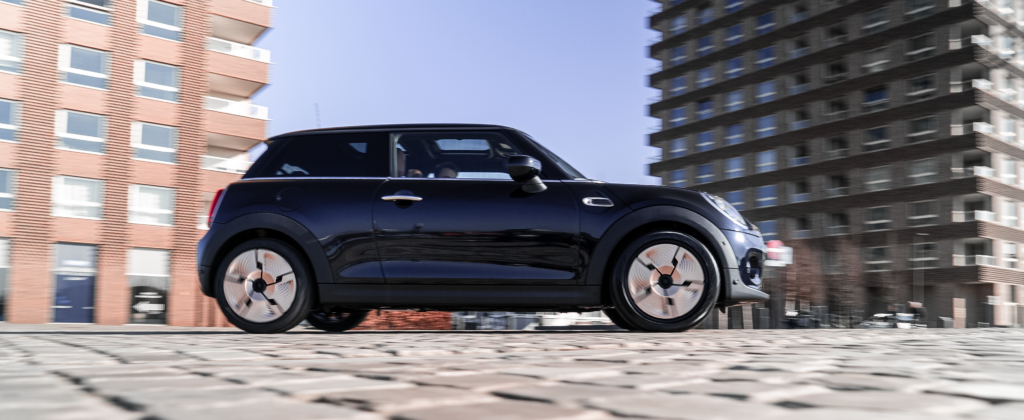Pushing the boundaries of mass customization in automotive: customized car parts
The introduction of additive manufacturing and customization in the automotive sector is a game-changer. It provides the opportunity for innovation by adding personalization to a vehicle experience and, by this means, improve customer satisfaction. Automotive manufacturers can add value to their high-end products through customization and 3D printing.
Twikit pushes the boundaries of mass customization, and the proprietary TwikBot technology opens the door to limitless possibilities for automotive and other industries.
Unlock the potential of personalization
To enable the benefits of car part personalization based on digital manufacturing, customization software is vital. The automotive industry can enter into a new level of mass customization of car parts through the proprietary TwikBot software.

TwikBot is an end-to-end cloud-based kernel that integrates seamlessly into any business model and allows for 3D printed, highly customized pieces created through a unique product personalization experience. Twikit’s software enables the end-customer to personalize parts and products resulting in unique vehicles to an individual’s lifestyle and aesthetic preference.
A one-of-a-kind vehicle is created by personalizing interior parts and external design features, which is possible thanks to mass customization software and 3D printing technologies. Car configurators are set-up as virtual showrooms where products are completely customizable. The end-customer visualizes their self-designed part, and when ordered, the production file is automatically sent to the right production facility through the Twikit Live platform.
Case: 3D printed customized aerodynamic wheel blades
To make the use case of 3D printed customized car parts through an end-to-end digital workflow real, we focused on an exterior aspect of car design. Wheel blades are the most impactful visual statement and set the mood for the drive.
3D printed customized car parts bring a lot more to the table for car brands than on-demand and digital manufacturing, which ensures an automated process. These concepts, such as thoroughly designed and customized wheel blades, improve a vehicle’s performance without losing sight of efficient production processes, creative possibilities, and high-end aesthetics.
A seamless, digital and automated workflow
Using 3D printing as a manufacturing method facilitates a shorter production time and allows for faster iterations. It enables personalization through a digital manufacturing workflow powered by TwikBot that allows on-demand, high-volume production. Because the complete chain from configuration to the connection with manufacturing is digital, the mass customization operation is automized and easy to integrate into any business model.
More is possible with mass customization of car parts. Brands can add a new dimension to their product and increase the value of a luxury product through an improved and personalized customer experience.
Additive manufacturing: optimized design and improved performance
Additive manufacturing allows the use of adapted materials for automotive parts that guarantee the same mechanical properties as with traditional manufacturing. This means that the quality is high-caliber while production is faster and more flexible.
The plastics (or metals) used for 3D printing are high-performance materials suitable for car parts and enable lighter structures thanks to the materials’ composition. Also, the creative freedom that 3D models free up allows for innovative designs such as lattices, decreasing the amount of material used and the part’s weight.
Because 3D printing allows an automotive manufacturer to construct lighter vehicles, the end-customer can enjoy a more sustainable transport means. A lightweight car consumes less fuel or electricity which is important for electric car manufacturers working on battery autonomy. Thanks to the creative freedom that additive manufacturing provides, aerodynamic designs help further improve the car’s performance.
Each car made unique and personal
Because complex patterns and open structures are easy to customize, car parts achieve a different look when only a few parameters are changed. Additive manufacturing allows for endless personalization possibilities and design freedom for both car producers and end-customers. Each car can be unique and personal with customization integrated into the workflow.
The high-end aesthetic is achieved by finishing techniques such as coating, dyeing, vaporfusing, painting, or even 2D printing directly on the part. Thanks to the finishes, 3D-printed car parts blend in with the rest of the vehicle’s design, ensuring the components are coherent with the car brand’s vision and aesthetic.
Twikit technology does prevent parts from being over-modified with its customization software through pre-defined options. Because strength and performance are essential for automotive parts, every component (including the customization options) is assessed for its strength and durability.
The end-to-end software solution for customized car parts
Personalization and additive manufacturing for automotive can provide end-customers with a car perfectly adjusted to their lifestyle and taste. Do you prefer urban chic, or are you more of a racing fanatic? The customization possibilities are infinite with the right software and digital manufacturing flow. 3D printed customized car parts enable a new strategic route for automotive manufacturers and allow them to rise above competitors with a sharp focus on customer experience.
The production also benefits significantly from introducing 3D printing as a manufacturing technology. The automized digital production flow enables light-weight parts that ultimately enhance the car’s performance. In combination with the freedom to apply complex structures, such as lattices, 3D printing makes a sustainable car of the future with a high-end aesthetic possible.
Twikit pushes the boundaries of mass customization and solves the big problem of personalization in the automotive industry with a cloud-based, end-to-end software solution.

Software
Platform
© 2024 Twikit. All Rights Reserved.